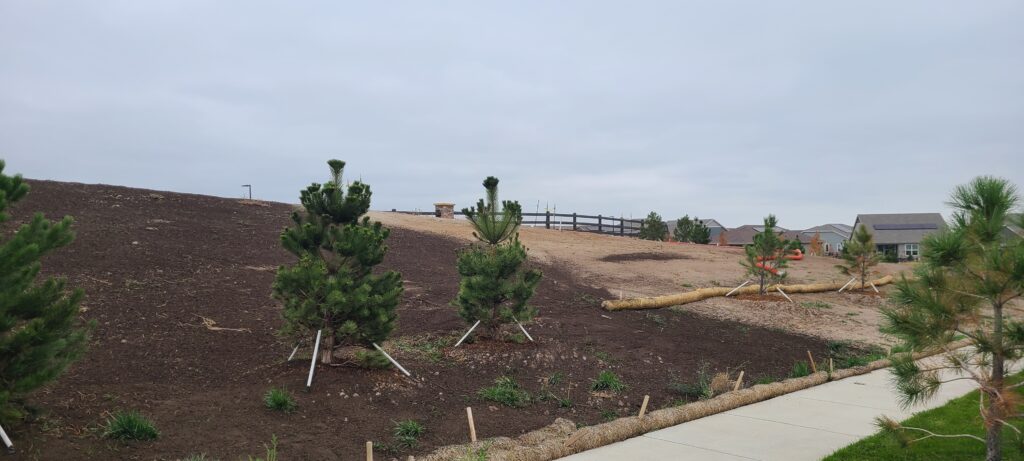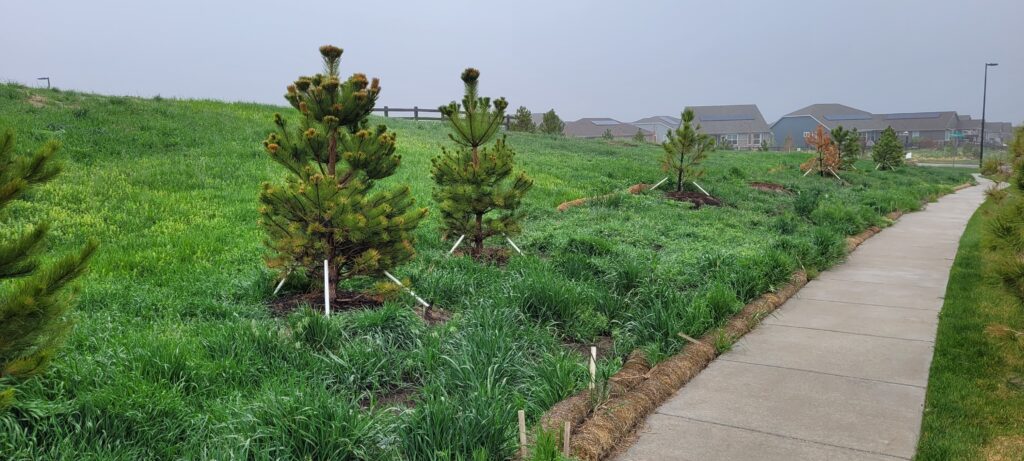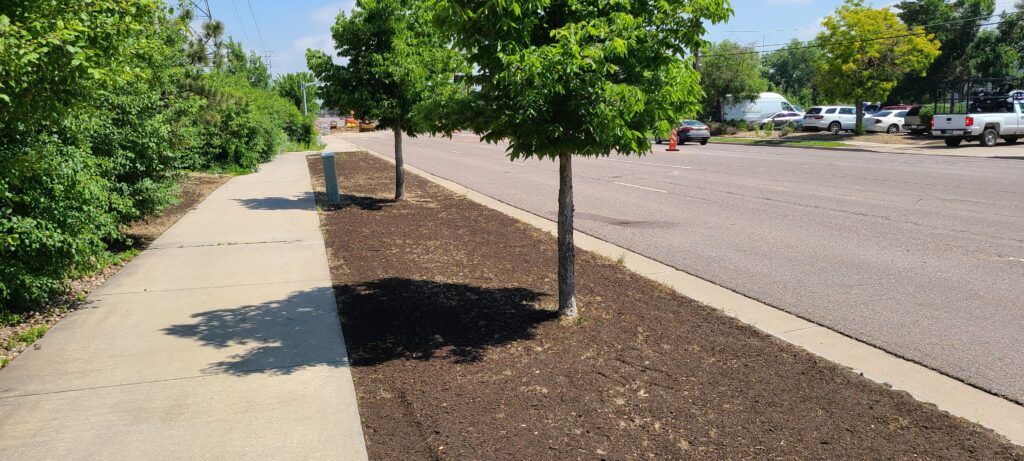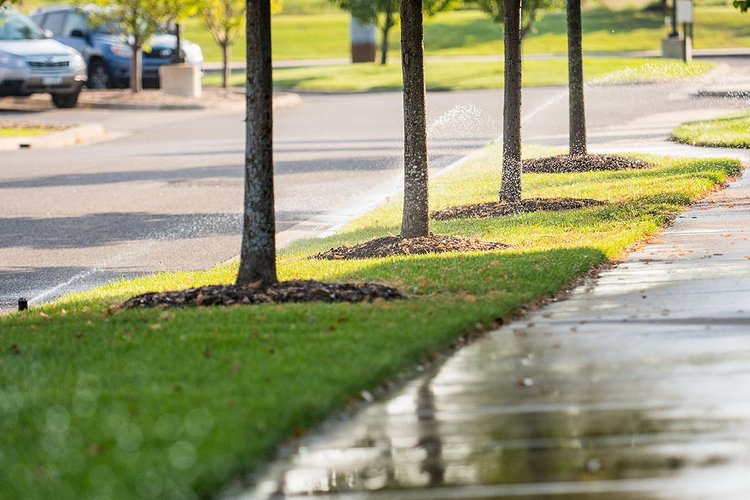Terraseeding &
Revegetation
High-Speed Material Placement for Effective Land Restoration
Transforming any disturbed land quickly back to its final form is a key objective of any construction project. For developers and GC’s partnering with Express Mulching means the ability to close erosion control permits within a growing season to prevent long drawn-out maintenance and reseeding costs. This long-term management eats at project profitability and prevents your team from focusing on the next project.
Express Mulching does this by providing the missing link to successful vigorous growth. The organics and microbes our process bring are unmatched by any alternative seeding method. By providing organics on a large scale, we ignite the soil’s ability to fix itself through microbial inoculation. Whole fresh compost is teaming with microbes, the biological vessel of soil repair. By inoculating the soil with nature’s workforce, we can improve the soil and begin a sustainable process of microbial reproduction and further soil fortification.


Turf Conversion
Major growth and expansion in Colorado fuels a need to conserve our precious water resources. The proliferation of bluegrass turf across Colorado as a cheap, easy-to-grow landscape material that is aesthetically appealing is a very water-intensive plant that is putting a strain on resources. Over the next 20 years in the mountain west, turf reduction as a means to reduce water consumption is a huge initiative being undertaken by municipalities and parks, as well as commercial and residential landowners across Colorado. This initiative will see the reduction of non-functional turf areas within landscapes across Colorado. Two main themes have emerged in this arena: converting the turf grass to native grasses that long-term require much less irrigation to achieve a pleasing aesthetic, or converting those areas to a xeriscape with mulch and more native and waterwise plant selections.
Converting Turf Grass to native provides a great way to reduce the amount of water required by a landscape long-term. The most environmentally friendly and cost-effective way to achieve this is to do a Terraseed turf conversion of the turf area. This process involves killing the existing turf in place using a number of methods. Then applying a compost blanket with native seed injected evenly over the dead turf at a ¾” depth. This process will decompose the existing turf in place and prevent expensive demolition costs, and reduce carbon release into the atmosphere. The native seed will germinate while the compost improves soil quality, making this a package for environmentally friendly turf conversions. This process allows up to 80% water use reduction over the first 3 years and can be done without breaking the bank.
Before

After

Turf Conversion
Major growth and expansion in Colorado fuels a need to conserve our precious water resources. The proliferation of bluegrass turf across Colorado as a cheap easy to grow landscape material that is aesthetically appeasing is a very water intensive plant that is putting a strain on resources. Over the next 20 years in the mountain west turf reduction as a means to reduce water consumption is a huge initiative being undertaken by municipalities and parks, as well as commercial and residential land owners across Colorado. This initiative will see the reduction of non functional turf areas within the landscape across Colorado. Two main themes have emerged in this arena. First being converting the turf grass to native grasses that long term require much less irrigation to achieve a pleasing aesthetic, or converting those areas to a xeriscape area with mulch and more native and waterwise plant selections.
